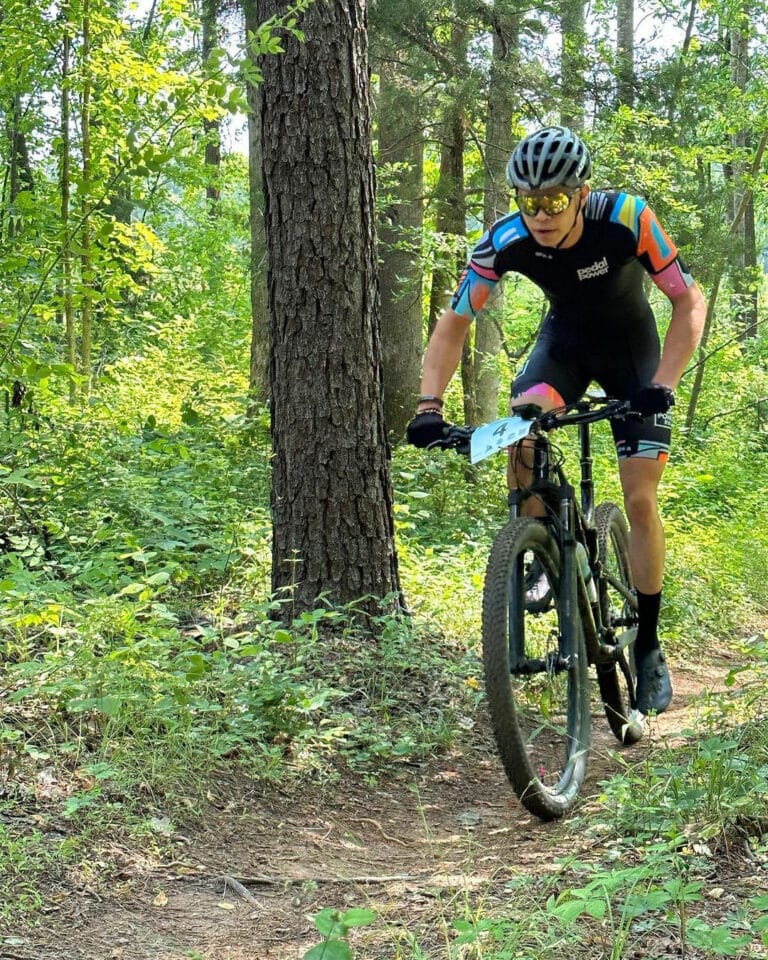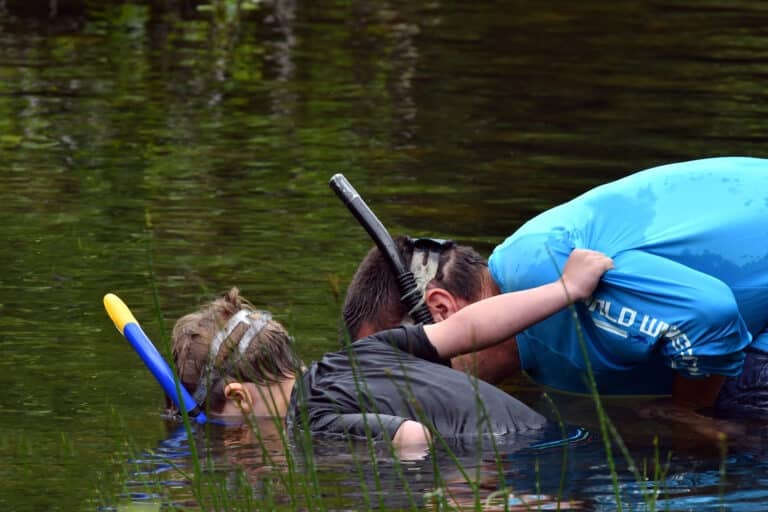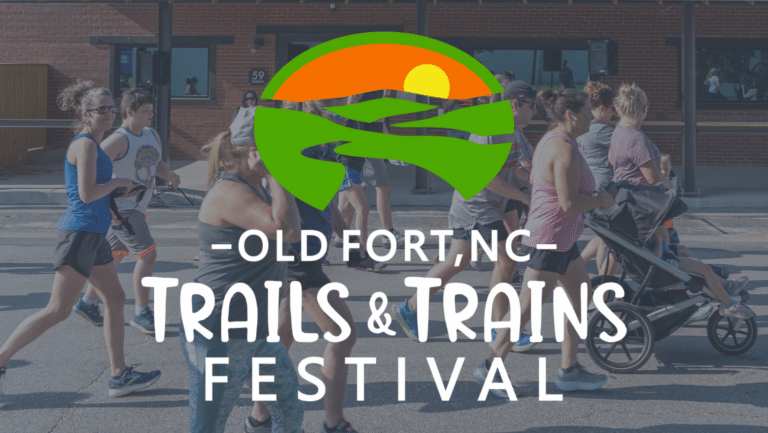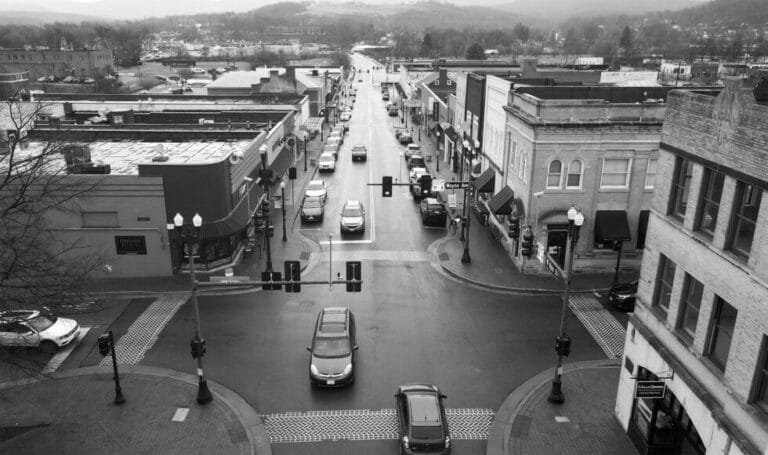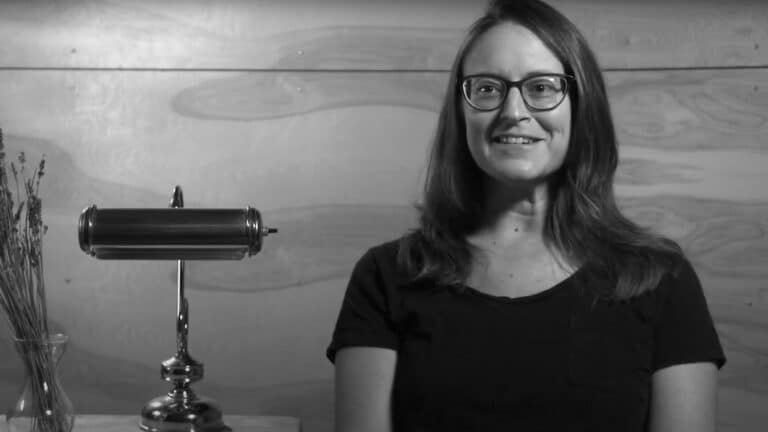“I once saw a guy with an armchair throw it over that railing into the river.” Hartwell Carson, the French Broad Riverkeeper whose work protects the vitality of the river, pointed to the bridge above us.
My four-year-old son, Tobin, and I looked up and I shook my head. It confounded me how some look at a river and see a playground, some see a temple, and some only see a dumping ground.
We participated in the French Broad Litter Floatilla, sponsored by Blue Ridge Outdoors, ENO, and 5Point Film Festival. We paddled the section of the French Broad flowing past downtown Asheville to pick trash out of the river.
Rafts drifted by us, stacked high with tires picked from the bottom. Two guys on paddleboards wore wetsuits so that they could swim closer to the river’s bottom and their paddleboards were so full of garbage that they barely floated.
Hartwell, Tobin, and I picked up pieces of glass on the edge of the Biltmore property. The soil was so full of glass that there was more of it than actual soil. I dug up an intact glass bottle with “Pure Milk Co.” printed on the front that we speculated was from the old Biltmore dairy.
Tobin asked me, “Mama, where does all this garbage come from?”
His question made me think about our own consumption patterns. Ever since we moved halfway up a mountain, we take our garbage to the landfill each week, sorting recyclables into bins for plastics, cardboards, cans, and mixed paper. Trash takes up more time in our lives than before and it’s making us more consciousness of our consumption patterns.
“So mama, people put the garbage here?” Tobin asked.
We spent the paddle back to the Salvage station talking about how litter can end up in the river if we aren’t careful. We thought about times when we haven’t been vigilant about stray packaging and water bottles that floated away.
At the take-out, the group piled a mound of everything hauled from the river. From a mattress to toilet seat to a dozen rubber tires, it was a tower of waste.
Someone commented how we could do this day after day and create similar mounds, because there was that much garbage left in the river.
It was depressing in a way, to think we hadn’t made much of a dent in the waste that pollutes one of our favorite rivers.
But then I think about how doing something one time makes it more likely we’ll all come back to do it one more time. That’s change. Doing the work forms a habit, it becomes the way we go through life.
Amy Allison from ENO presented awards for the most interesting piece of garbage found and for the participants who travelled the greatest distances.
She held up a headlamp. “This is for the littlest-cleaner-upper.”
Tobin looked back at me and I gave him a gentle push forward to claim his prize.
He turned it on, testing out the blue and green options and looked up at me. “Mama, I’ve always wanted a headlamp of my own.”
I smiled at him, proud that part of his identity included being a person who picks up garbage, that protecting our rivers became a way he would find his place in the world.

